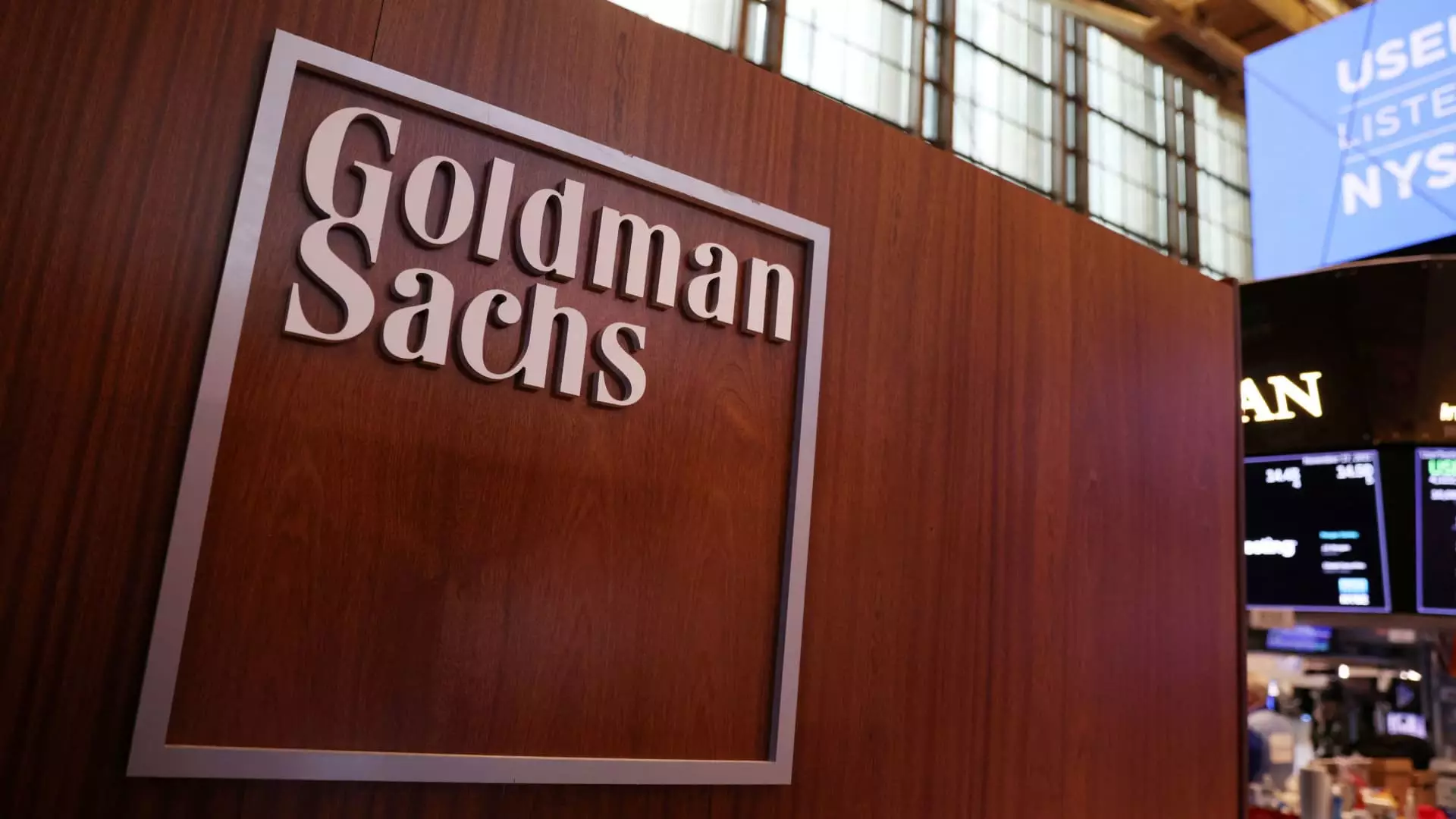The onboarding of an AI named Devin at Goldman Sachs symbolizes more than just technological innovation—it signals a frightening shift towards replacing human ingenuity with cold, soulless algorithms. While executives tout this as a “hybrid” workforce, the truth is that what we’re witnessing is an erosion of meaningful human employment cloaked in a veneer of progress. Goldman Sachs, a cornerstone of the financial industry, is inching closer to a reality where machines do not just assist but fundamentally replace those who have historically driven economic innovation. This move, hailed as cutting-edge, masks the underlying reality: a dangerous march towards dehumanization in workplaces once characterized by critical thinking, creativity, and ethical judgment.
The narrative spun by Goldman’s tech chiefs seems optimistic—workers will supervise Devin, and humans will only need to manage the AI’s output. This loosely painted picture conveniently overlooks the creeping reality that automation is no longer a tool meant to support human tasks but a means to diminish human presence altogether. Global finance institutions may trumpet this as increased efficiency, yet it raises profound ethical concerns: are we sacrificing stability, employment, and dignity for short-term gains? The notion of collaboration becomes a dangerous satire when human oversight becomes a mere afterthought, and the very essence of craftsmanship in banking—thinking through complex issues—is degraded into algorithmic drudgery.
The Illusion of Increased Productivity as a Cover for Job Attrition
Proponents argue that deploying AI like Devin will quadruple productivity, which sounds impressive but masks a dark truth. The supposed benefit—the automation of routine coding, data analysis, and repetitive tasks—comes at the expense of hundreds of thousands of jobs worldwide. Banks and corporations across sectors have openly acknowledged that AI could wipe out millions of roles in coming years, fundamentally transforming the employment landscape. This isn’t progress; it’s a societal upheaval designed to maximize shareholder returns at the cost of worker livelihoods.
The enthusiasm of tech giants like Microsoft and Alphabet, claiming that AI is already producing significant chunks of code, reveals an unsettling trend: the valorization of machine output over human expertise. The romanticized idea that AI will free humans to focus on more meaningful, strategic work is a comforting narrative—yet it often serves as a smokescreen to justify layoffs and cost-cutting. Such promises distract from the reality that AI-driven automation tends to concentrate wealth and power in an already unequal system, intensifying economic disparities while marginalizing those whose skills are rendered obsolete.
The Myth of a Symbiotic Future in the Workplace
The concept of a “hybrid workforce”—where humans and AI coexist in harmony—is more of a corporate fantasy than a tangible reality. It glosses over the fact that AI, especially in its current form, is fundamentally replacing human labor rather than complementing it. Goldman Sachs’ vision, articulated by Marco Argenti, sounds progressive but overlooks the painful social consequences of such a transition.
Cognitive automation that handles complex multi-step jobs erodes the very foundation of skilled employment. What happens when entire teams of engineers, analysts, and support staff find their roles diminished or entirely eliminated? The utopian picture of humans supervising AI models ignores the economic reality: the commodification of intelligence and skill, driven by relentless efficiency, ultimately leaves workers vulnerable. This is not a future of mutual benefit but a troubling diminishment of human agency within critical financial processes.
The Ethical Dilemmas and Societal Risks of Unchecked AI Adoption
The push for AI integration in sectors like banking carries significant ethical baggage. If AI can automate decision-making at scale, who bears responsibility when mistakes occur? What safeguards are in place to prevent systemic errors that could have catastrophic implications for the economy or individual lives? The seductive promise of increased speed and lower costs often bypasses these crucial questions, favoring corporate interests over societal well-being.
Moreover, framing AI as a tool that “does as well as any developer” dangerously underestimates the human qualities—ethical judgment, empathy, moral discretion—that are vital to responsible financial decision-making. Relying on algorithms to handle complex and nuanced issues risks creating a system blind to context and human values, a potential recipe for disaster hidden behind corporate jargon.
The Power Shift Toward Tech Elites and the Future of Democracy
As AI continues its relentless advance, the financial sector—long a pillar of economic stability—is increasingly influenced by a handful of tech giants and startup disruptors. This concentration of technological power threatens to undermine democratic accountability, concentrating decision-making in the hands of a few elite engineers and investors. While Goldman Sachs and similar institutions may tout the benefits of innovation, they fail to address the broader societal implications: growing inequality, loss of middle-skill jobs, and reduced public oversight.
This technological shift risks creating a bifurcated society—highly skilled workers who manage and supervise AI, and millions of low- or no-skill workers who are pushed out. The promise of a “progressive” future, where humans and machines work side-by-side, becomes more like a dystopian scenario where humans are displaced from dignity, and economic power is consolidated even further. As we move down this path, the critical question remains: are we fostering a society driven by technological empowerment or by corporate profiteering at the expense of the common good?

